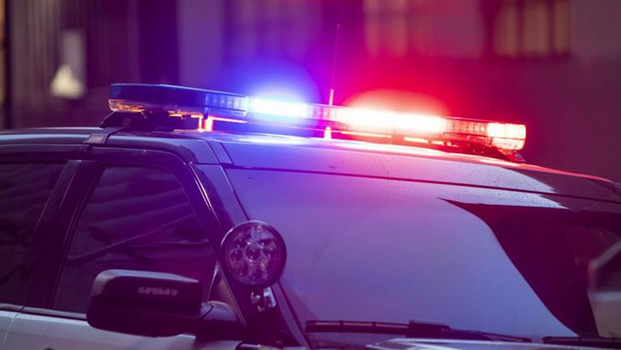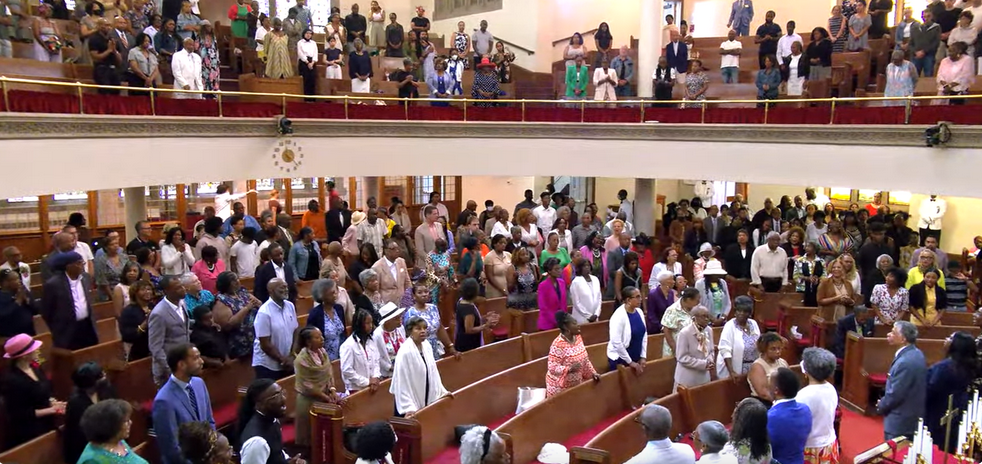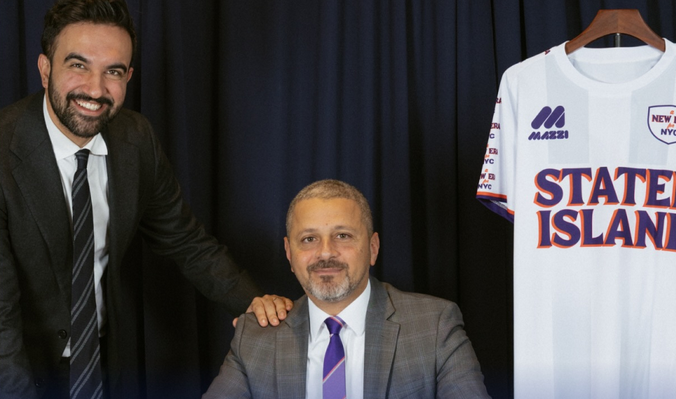Photo: YouTube
New York, NY – As the nation continues to grieve the brutal police killings of Tyre Nichols and Anthony Lowe Jr. and grapple with a path towards meaningful police reform, families who’ve lost loved ones to the NYPD and other directly impacted New Yorkers, advocates and elected officials gathered on the steps of City Hall to push for passage of vital police transparency legislation and call for action to strengthen NYPD accountability.
Wednesday, Communities United for Police Reform and organizations from around the city, joined NYC Public Advocate Jumaane Williams and Council Members Alexa Avilés, Crystal Hudson and others to rally for passage of the How Many Stops Act—two common sense, good government bills, which will bring critical and urgent oversight and transparency to the vast majority of NYPD interactions with the public.
“As we all grapple with the horrifying police killings of Tyre Nichols in Tennessee and Anthony Lowe Jr. in California we must remember that – while these incidents occurred in different cities – they stem from the same systemic problems with policing and the same failed approach to public safety that led to the NYPD killings of Antonio Williams, Allan Feliz, Kawaski Trawick, Delrawn Small, Ronald Anthony Smith, Eric Garner and too many others here in New York City,” said Sala Cyril of the Malcolm X Grassroots Movement, and Spokesperson for Communities United for Police Reform. “As members of communities that have historically borne the brunt of the NYPD’s abusive practices and organizations accountable to them, we demand that our elected officials take concrete action to end police violence and ensure true community safety. Immediately passing the How Many Stops Act to require reporting on ALL NYPD street stops, investigative encounters and consent searches is an essential part of this.”
The How Many Stops Act (Intros 538 sponsored by Councilmember Crystal Hudson and 586 co-sponsored by Public Advocate Jumaane Williams and Councilmember Alexa Aviles) will require the NYPD to report on low-level police street stops and encounters, including where they happen, demographic information on the person stopped, the reason for the encounter, and whether the encounter leads to any use of force or enforcement action. It would also require the NYPD to fully report on their use of consent searches, searches in which a police officer needs no probable cause to search a person or their belongings if the person gives permission. Together, the bills will give a fuller and clearer picture into how the NYPD is interacting with our communities.
“The How Many Stops Act is a common sense, good government package that will bring much-needed transparency to the NYPD. I’m proud to join Communities United for Police Reform as a prime sponsor of the How Many Stops Act. We must assure our communities that the NYPD will be held accountable and that our City is committed to ending the culture of impunity and abuse that pervades the department. This package will give New Yorkers a more complete picture of the police department’s activities in our communities, mandating the full and accurate reporting of police interactions with the public, and ensure the NYPD is adhering to the City’s Right to Know Act, creating safer communities for us all,” said Council Member Crystal Hudson, lead sponsor for How Many Stops Act bill, Intro 538.
“The ‘right to know’ includes the right to critical information about whether and how policing reforms are being implemented on the ground in our communities. In a moment where the tragic results of law enforcement encounters gone wrong fill our headlines, our screens, and our minds, this legislation is urgent. Sharing data on the number and nature of law enforcement stops, including geographic and demographic information as well as reporting on the outcomes of these encounters, will help to improve transparency and accountability. Passing the bills in the How Many Stops Act is vital for advancing community safety and the work that has been underway since I came into government over a decade ago,” said Jumaane D. Williams, NYC Public Advocate, co-lead sponsor of How Many Stops Act bill, Intro 586.
“We’ve seen time and time again how routine police stops have ended in tragedy, and enough is enough,” said Council Member Alexa Avilés, co-lead sponsor of How Many Stops Act bill, Intro 586. “I am honored to co-sponsor this bill with Public Advocate Jumaane Williams to demand that the NYPD report on all levels of police streets stops and investigative encounters. Our bill requires police to track key information such as demographic information, the reason for the encounter, and whether the encounter leads to use of force. The public deserves to know why and how many times New Yorkers are stopped by police. We often hear that the NYPD wants to mend relationships in our communities, and basic transparency and accountability must come first.”
Currently, the NYPD is only required to report on level 3 stops, commonly known as stop-and-frisk. Of these Black and Latino/a/x residents made up 87% of stops as of 2021. Given these disparities and the grave harms caused by unnecessary police interactions, advocates are demanding that the NYPD be required to report every stop they make.
“The Anti-Crime unit that killed Antonio {in 2019} was disbanded the next year because of its brutality, but Mayor Adams brought it back and rebranded it as ‘Neighborhood Safety Teams.’. The Mayor has been patting himself on the back about these teams – but the truth is – this is the NYPD’s version of the Memphis SCORPION unit that killed Tyre Nichols. Now Mayor Adams wants to put these teams in more neighborhoods, which is why passing the How Many Stops Act is so urgent,” said Shawn Williams, father of Antonio Williams.
“If we had more transparency about how the NYPD is using low level stops to harass and abuse Black and Latinx New Yorkers before Antonio was killed, maybe he would still be here today. If officers are forced to report EVERY stop and why they are making them, they’ll be less likely to use these stops in illegal and abusive ways, because they know they’ll be exposed,” said Gladys Williams, stepmother of Antonio Williams who was killed by the NYPD in 2019.
For more information about the How Many Stops Act: https://www.changethenypd.org/sites/default/files/docs/final_hmsa_fact_sheet_01.5.23.pdf
Many other politicians community leaders commented on the need for police reform in New York City.
“Police reform includes building trust between law enforcement and the communities they are sworn to protect. Trust is established with transparency, and the How Many Stops Act will increase transparency around the NYPD’s procedural responsibilities by requiring reporting on all investigative encounters and consent searches. In doing so, loopholes around existing reporting requirements from older Council legislation will be closed. In addition, the NYPD will be forced to hold its officers to a higher standard when conducting low-level stops or requesting consent to a search, with the full knowledge that their actions and who they question are subject to public scrutiny. This higher standard is what Black, Latino and Asian communities expect of their police officers” said Council Members Kevin C. Riley and Oswald Feliz, Co-Chairs of the NYC Council’s Black, Latino and Asian Caucus.
“It is long past time to stop letting the NYPD shroud its practices in secrecy, monopolize an $11 Billion budget without transparency and accountability, and generally act as a rogue agency. The ‘How Many Stops’ Act will shed some light on who the NYPD stops, who it investigates, and why, and it will ensure that the hard won ‘Right To Know’ Act is protected,” said Tiffany Cabán, Council Member, District 22.
“True public safety comes from transparency, accountability, and trust. Ensuring real oversight of the NYPD continues to be an urgent need for all New Yorkers. The How Many Stops Act will bring critical and urgent transparency to the NYPD’s daily activities in our communities. I’m proud to be a co-sponsor of these bills and encourage Speaker Adams and Public Safety Chair Hanks to quickly advance them for a vote,” said Sandy Nurse, Council Member, District 37.
“The How Many Stops Act, Intro 586 & 538 will go a long way in documenting police encounters that too often lead to illegal abuse in the form of detention, arrest or bodily harm. The passing of these acts will put a spotlight on police investigative encounters and searches as part of a comprehensive response to the NYPD acting above the law,” said Charles Barron, Council Member, District 42.
“Too often, our community has been forced to confront the realities imposed by a racist policing system. When we have a system that was designed to exert control over Black and Brown people, we can’t act surprised when it ultimately harms us. As elected leaders, need to envision a system that supports the health, safety, and well-being of all New Yorkers. In the meantime, these two pieces of critical legislation take important steps to improve transparency and accountability for the NYPD,” said Farah Louis, Council Member for District 45.
“The mayor continues to double down on broken windows policing and has aggressively defended the use of notoriously violent units, like the NYPD Strategic Response Group and Neighborhood Safety Teams, Adams’ rebrand of the NYPD’s version of the Scorpion Unit that killed Tyre Nichols,” said Gabrielle Cuesta of the Justice Committee, a Steering Committee organization for CPR. “In this context, ensuring real oversight and transparency of how the NYPD is operating in our communities is more important than ever.”
“Mayor Adams talks about increasing police presence into our neighborhoods because it’s important that people feel safe but we are not safe. They are not connecting us to services, they are not protecting or serving us or treating us with care or courtesy. Instead they are surveilling us, harassing us, brutalizing us and occupying our neighborhoods. That is not safety. We need transparency and oversight and that’s why I am fighting for the How Many Stops Act!” said Ibrahim X, VOCAL-NY leader.
“Transparency alone is not enough to end police violence. But completing the picture of what policing really looks like in our city is an essential step towards holding police accountable and ensuring community safety. We need to know how many stops the NYPD actually makes and this bare minimum, common-sense legislation would ensure that we do,” said Audrey Sasson, Executive Director of Jews For Racial & Economic Justice (JFREJ).
“As public defenders in the Bronx, we see every day how the police continue to stop and search the people we represent without regard to their rights or safety. They do it blatantly, even on body cameras. And that’s only the cases we see that result in charges. How many more stops and searches are going on that are violating people’s rights without anyone knowing? At the end of the day, everyone in this city wants to feel and be safe. But we cannot achieve true public safety without a clear picture of the police’s role, especially in communities that have historically borne the brunt of racist and discriminatory policing,” said Christine Rivera, Policy Counsel at the Bronx Defenders.
“The NYPD continues to underreport stops and implement its stop-and-frisk policy in a racially discriminatory and harmful manner – while the total number of NYPD reported stops has declined since the Floyd v. the City of New York Case in 2013, the racial disparities have remained the same, with Black and Latinx New Yorkers making up 87% of stops in 2021. We need to pass the How Many Stops Act because any encounter with the NYPD, including low level encounters, can be frightening and – in the worst cases – they can escalate towards brutality or even death,” said Samah Sisay, Staff Attorney at the Center for Constitutional Rights.
“Ten years after a federal judge found that the NYPD racially profiled New Yorkers, we still do not know how many people are stopped by the police in this city. Stops that are reported show disturbing racial disparities that the NYPD has still failed to address. That’s appalling and must be remedied immediately. The How Many Stops Act will add the needed transparency to NYPD operations that will help protect New Yorkers. We urge City Council members to endorse this legislation, bring it to the floor and approve it into law,” said Robert Willis, Justice Advocate Coordinator at Latino Justice.
“So-called “lower-level” encounters don’t feel low-level to our clients, who face well-founded fears of racial profiling and harassment. They know how often police escalate these encounters to terrible violence and abuse. The transparency promised by the How Many Stops Act is a necessary step toward accountability, and New Yorkers deserve a full accounting of all police encounters in their communities,” said Molly Griffard, Staff Attorney, of the Law Reform and Special Litigation Unit at the Legal Aid Society.
“Police transparency is a racial justice issue, and it is long past time that the NYPD provides a comprehensive picture of how they work and what they have hidden from public view. As the Adams administration continues to cling to broken windows policing, inflicting real harm and emotional distress on overwhelmingly Black and Brown New Yorkers, the City Council must immediately pass the How Many Stops Act to require a full accounting of all NYPD stops and consent searches in our communities. New Yorkers deserve transparency and accountability, not a police force that operates with impunity,” said Michael Sisitzky, Assistant Policy Director at the New York Civil Liberties Union.
“We must put a stop to the systemic problems that have led to the tragic and unwarranted police killings of Black and Brown people like Tyre Nichols. These horrific incidents of police brutality all stem from failed approaches to public safety, including over-policing measures, illegal searches and the use of racially motivated practices like ‘stop and frisk. In order to meaningfully reduce police violence that characterizes this nation and the NYPD, police officers must be held accountable for their actions. We urge the New York City Council to pass the How Many Stops Act to ensure full transparency of the NYPD’s daily activities and any abusive power by its police officers,” said Carmen Perez-Jordan, President and CEO of the Gathering for Justice.
About Communities United for Police Reform
Communities United for Police Reform (CPR) is an unprecedented campaign to end discriminatory policing practices in New York, and to build a lasting movement that promotes public safety and reduces reliance on policing. CPR runs coalitions of over 200 local, statewide and national organizations, bringing together a movement of community members, lawyers, researchers and activists to work for change. The partners in this campaign come from all 5 boroughs, from all walks of life and represent many of those most unfairly targeted by the NYPD.






